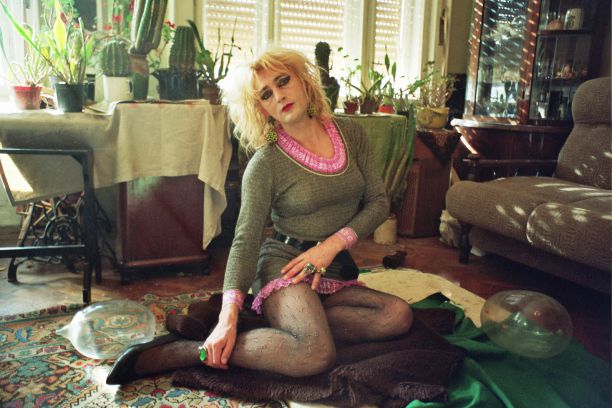
- This event has passed.
Dok Night / Filmavond: MARBLE ASS directed by Zelimir Žilnik

Every Thursday we’re open, normally with food BUT this week the KITCHEN IS CLOSED.
Come for a drink, meet other people interested in art and activism. Bring your favourite game and your friends. Or meet new people at the bar.
***
18.00 Bar open
20.30 Free screening
MARBLE ASS 1995

(Dupe od mramora)
Directed by Zelimir Žilnik
86 minutes
In Serbian with English subtitles
Oh, all those cutting-edge movies from the former east bloc that seem to be lost… an entire world (and reality) went up in smoke almost immediately when the Berlin wall fell. But actually they are sometimes still there, buried very deep somewhere. This one is from Yugoslavia, a country that had a rich history of adventurous filmmaking. There was a whole wave of filmmakers who were wild and euphoric, with biting insights into politics and culture that were razor sharp. In fact they are so sharp, if you go into them extensively, you are bound to cut yourself once or twice. And the rascal who made this particular movie was one of the most uncompromising and inspired, having helped ignite the legendary Yugo Black Wave cinema movement in the 1960s. Here we catch him 25 years later, and he’s still knocking out radical movies that don’t fit in any box.
Zelimir Žilnik, like most of his Black wave comrades, focused on the outsiders of society. In this way they attempted to shift the axis of the entire country. This flick was made in the early 1990s, and anyone that knows their history will understand that at this point in time Yugoslavia was a war-torn country. So this film throws us in the middle of that huge battle, but what an unusual angle it takes!
Made during the Balkan war what we get, in a way, is a defense of trans queer culture amid the guns and bombs going off everywhere. It focuses on two transgender sex workers—Merlin and Sanela—who have gone into this line of work as a form of defiance against the macho militaristic war culture existing in Yugoslavia at the time. Blending this very real historical situation with a fictional queer narrative makes this a hybrid example of ‘docufiction’. This aspect becomes even more true when you realize the two main actors are actually transgender prostitutes in real life, so in a way they are just being themselves.
Almost impossible to imagine, this Yugoslavian flick is about sexual diversity, identity fluidity, social and class conditioning. It revolves around a wild subculture that wasn’t trying to commercialise, hype, or Instagram its identity. And its beauty is precisely that, it was a radical alternative to the mainstream—mirroring it, distorting it, parodying it—but not trying to fit into it. I was listening to an interview with a musician recently, who was looking at a leaf in a garden, and while holding it talked about how singular it was—that just being itself was already its statement, and how it didn’t have to try to imitate all the other wildlife around it. The offbeat trans community in this movie is a lot like that.
A series of socially engaged movies, screened once a month on Thursdays. Touching on such hot topics as immigration, homelessness, racism, education, radical gender propositions, the pandemic and gentrification, these films not only explore visionary politics, but are also chosen to stir our imagination and creativity. The essence of cinema is the collective experience, and these screenings are aimed at creating intimate communities again in an increasingly hectic and fragmented world.
